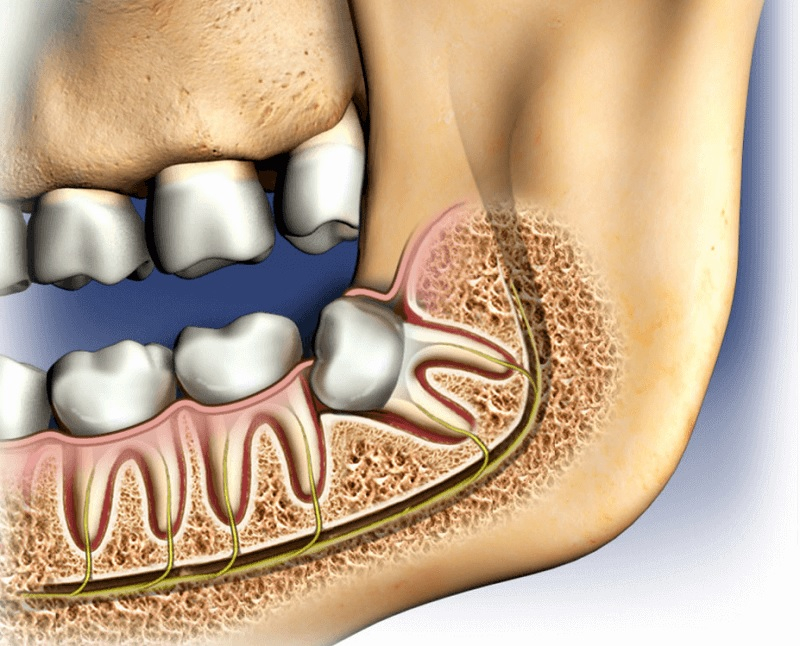Wisdom Teeth
If you've ever had to have your wisdom teeth removed, you've probably wondered why they were there in the first place, since they serve no purpose other than making you hurt like hell. When they do, it's usually very unpleasant because there isn't normally enough room for them to squeeze in, and discomfort eventually turns into pain. If things get out of control, they could potentially undo years of orthodontic treatment in what would essentially be the biggest punch to the mouth ever. Well, there is a reason why they're there, and apparently, wisdom teeth is one of the vestigial features of the human body.
The origin of wisdom teeth traveled way back to where the human species come from. As the human species expanded from Africa, it populated a number of ecosystems and eventually gave rise to human civilizations. A change in human nutrition toward the intake of soft and processed foods coincided with those developments, which eventually reduced the necessity for strong, broad jaws. The third molars, or wisdom teeth, became particularly vulnerable to impaction when the size of the human jaw shrank. Congenital absence of wisdom teeth is becoming more common. They are now regarded as a vestige of the human body as a result.










